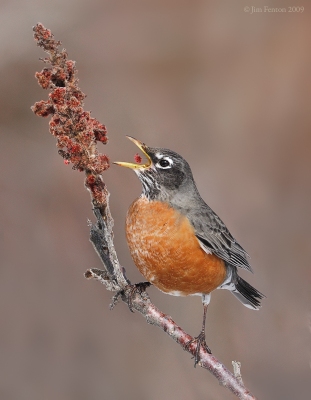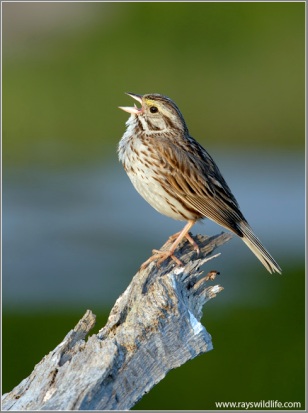While listening to Wisdom For The Heart on BBN (Bible Broadcasting Network), I heard this message by Pastor Stephen Davey and wanted to share it. His message was “Better than the Birds” and of course it caught my attention. There are four parts, but I am only sharing the introduction and part four here.
Better than the Birds
Luke 12:6-31
Birds of the Bible – Better Than The Birds was the introduction to the “Better Than The Birds” message by Pastor Stephen Harvey.
We were told that “1. Worry denies the gracious care of God.”
We were told, “2. Secondly, worry depreciates the higher value of mankind” In Better Than The Birds II
We were told, “3. Thirdly, worry distorts our perspective in life” In Better Than The Birds III
Now for Part IV
4. Worry diminishes our distinctiveness as believers
Look at verse 29. “And do not seek what you will eat and what you will drink, and do not keep worrying [about it]. 30. For all these things the nations of the world eagerly seek.”
Even as Christians we can get caught up in the world’s idea that we live because of our bodies. And since we think we live because of our bodies, we start living for our bodies.
That’s the way the world lives . . . it’s literally all about your body – your body – what you do with it, what you do for it, what you do to it – what you put on it, what you put in it.
That’s the passion of the world – the body.
Further, one author wrote it this way, “it is characteristic of the secular world to be obsessed with economic questions, to be almost entirely engrossed by consumer concerns, to be preoccupied with finding and getting better and better things.”xi
Jesus says, effectively, all these things are the things the nations of earth are after.
But maybe you’re thinking, well, somebody’s got to worry about my stuff!
So be careful here . . . let’s be balanced. Jesus isn’t advocating that we just stick our heads in the sand and everything will be alright.
The truth is, the animal kingdom is busy. Those little birds work hard . . . just watch them sometime. I doubt any of them get 2 weeks of vacation.
The question is, are you actively stewarding or managing what God has given you or are really at heart worrying about what God hasn’t given you or what He might not let you keep?
One author reviewed statistical percentages and summarized that:
40% of our worries are about the future
20% of our worries are about the past
22% of our worries are about our health
And 8% of our worries are about petty things we can’t do anything about; which means, 90% of what we worry about are things we can’t change.
Which is why one man wrote, “Worry is like a rocking chair – it gives you something to do but it never takes you anywhere.”
But what do we do about stuff we worry about?
I read about one man’s solution. He told his friend, “I have a mountain of debt; I’ve lost my job, my car was repossessed, our house is in foreclosure and I’m not even worried about it!”
“You’re not?” his friend said, “why not?”
“Well, I’ve hired a professional worrier. He does all the worrying for me, and that way I don’t have to think about it.”
“That’s fantastic. How much does your professional worrier charge you for his services?”
“Fifty thousand dollars a year.”
“Fifty thousand dollars a year – where are you going to get that kind of money?”
“I don’t know . . . that’s his worry!”xii
There’s got to be a better solution than that.
Jesus effectively challenges us with two solutions. They’re not easy . . . but they’re right.
1. Make sure God and His kingdom stays first!
Verse 31, Jesus says, ‘But seek His kingdom and these things will be added to you.”
In other words, He’s promised to give you the Kingdom – vs. 32 – now live with the Kingdom of God in mind.
Imagine it this way. Imagine that after this service, I showed you a will that my uncle left – he was a multimillionaire and he just died and showed you where he left all his money to you – all 25 million dollars. He didn’t leave it to me – his nephew – he left it to you – my former friend. You used to go to church here.
Now all you have to do is go to the bank tomorrow morning, sign the papers and deposit that 25 million dollars into your personal bank account.
Now tell me. How would you feel about your car on the way home? Would you pull up at a red light and be embarrassed that it’s so old? What about the interest rate on your home?
Would you worry about that? What about the stock market forecasts on the evening news tonight? Would you be worried about the meeting your boss has asked for tomorrow afternoon . . . would you lose any sleep over any of that?
No . . . why not? Because you are even now a multimillionaire, even though you don’t have one nickel of that money in your account.
But it is effectively already yours.
Jesus says, “You’re going to be given the kingdom – you are a king and queen in the coming spectacular reign of Christ on earth.
Between now and then, how are you going to live? You don’t have the crown or the robe or the throne – but it’s already yours. So keep that in mind live for that . . . pursue that . . . seek first that kingdom . . . keep your future in mind.
2. Make sure God and His kingdom stays first!
Matthew’s account adds another phrase to Luke’s account that provides the second solution.
Matthew records in 6:34; So do not worry about tomorrow; for tomorrow will care for itself. Each day has enough trouble of its own.
Can you believe Jesus said that? Don’t worry about tomorrow – it has enough trouble just waiting for you.
Is He being pessimistic?
No . . . He’s also handing out another pearl of wisdom.
Here it is . . . not only should we make sure we put God first; secondly, we should make sure tomorrow stays put!
I’m not sure about the grammar, but you get my point. Make sure tomorrow stays put.
Now, Jesus isn’t saying don’t plan for tomorrow; He’s saying, don’t pull tomorrow’s problems and challenges into today.
God gives grace for today – and He doles out His grace one day at a time; which means Satan will try to crush our spiritual shoulders by trying to make us carry tomorrow’s burdens with only today’s grace.
So, overcoming worry means you develop the art of living one day at a time.xiii
Hudson Taylor often said, “When you are walking with God [today], the responsibilities [of tomorrow] rest with Him.xiv
In the meantime, make sure you put God first;
make sure tomorrow stays put.
The truth is, and the convicting challenge in these final questions we’ve explored, is that you are better than the birds – now live like it . . . live up to your value as you trust your sovereign Lord – who cares about every detail of your life now – and He’s even preparing a kingdom with you in mind.
Martin Luther, that reformer centuries ago once described his favorite preacher. He wrote, I have one preacher I love better than any other; it is my little tame robin who preaches to me daily. I put his crumbs upon my window sill, especially at night. He hops onto the sill when he wants his supply, and takes as much as he desires to satisfy his need. From thence he always hops to a little tree close by, and lifts up his voice to God, and sings his carol of praise and gratitude, then tucks his little head under his wings, and goes fast to sleep, leaving tomorrow to look after itself.xv
That’s quite a preacher . . . quite a sermon to begin living up to – let’s live up to it, today.
This manuscript is from a sermon preached on 4/28/2013 by Stephen Davey.
© Copyright 2013 Stephen Davey All rights reserved.
(Copied with permission from Wisdom for the Heart and Pastor Stephen Davey.)
i John MacArthur, Matthew 1-7 (Moody Publishers, 1985), p. 419
ii Ibid
iii William Barclay, The Gospel of Luke (Westminster, 1975), p. p. 160
iv Bruce B. Barton, Life Application Bible: Luke (Tyndale, 1997), p. 314
v Barclay, p. 161
vi MacArthur, p. 119
vii MacArthur, p. 140
viii William Barclay, The Gospel of Matthew: Volume 1 (Westminster, 1975), p. 257
ix R. Kent Hughes, Luke: Volume 2 (Crossway, 1998), p. 54
x MacArthur, Matthew, p. 421
xi Grant R. Osborne, Exegetical Commentary on the New Testament: Luke (Zondervan, 2010), p. 252
xii Robert J. Morgan, Stories, Illustrations and Quotes (Thomas Nelson, 2000), p. 804
xiii Barclay, Matthew, p. 258
xiv Dr. and Mrs. Howard Taylor, Hudson Taylor: Volume 2 (OMF International, 1996), p. 31
xv Morgan, p. 804
Lee’s Addition:
What a great series of messages from Pastor Stephen Davey. Wisdom For The Heart
We heard this originally on our local Bible Broadcasting Network station. It is now on the internet at:
BBN (Bible Broadcasting Network),
See:






















